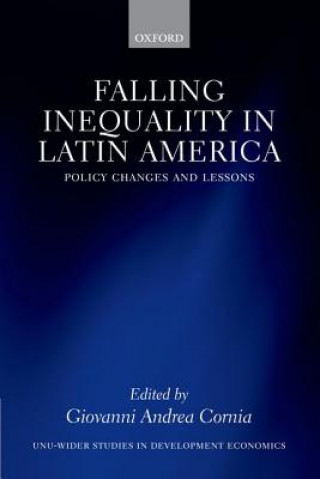
Code: 02703844
Falling Inequality in Latin America
by Giovanni Andrea Cornia
The volume aims to document and explain the sizeable decline of income inequality that has taken place in Latin America during the 2000s. It does so through an exploration of inequality changes in six representative countries, and ... more
- Language:
 English
English - Binding: Hardback
- Number of pages: 398
Publisher: Oxford University Press, 2014
- More about this

You might also like
-

Worst Journey in the World
15.41 € -23 % -

Active Arithmetic!
15.01 € -18 % -

Большая энциклопедия для малышей от 1 года до 3 лет
19.22 € -5 % -
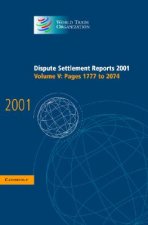
Dispute Settlement Reports 2001: Volume 5, Pages 1777-2074
264.86 € -

From Corruption to Modernity
58.27 € -

Transforming Mental Health and Substance Abuse Systems of Care
19.22 € -

Essays on Saving, Bequests, Altruism, and Life-cycle Planning
13.31 €
Give this book as a present today
- Order book and choose Gift Order.
- We will send you book gift voucher at once. You can give it out to anyone.
- Book will be send to donee, nothing more to care about.
More about Falling Inequality in Latin America
You get 434 loyalty points
 Book synopsis
Book synopsis
The volume aims to document and explain the sizeable decline of income inequality that has taken place in Latin America during the 2000s. It does so through an exploration of inequality changes in six representative countries, and ten policy chapters dealing with macroeconomics, foreign trade, taxation, labour market, human capital formation, and social assistance, which point to the emergence of a 'new policy model'. The volume addresses a major issue in economic development with profound implications for many developing regions and those OECD countries mired in a long-lasting financial crisis and economic stagnation. For at least the last quarter of the twentieth century, Latin America suffered from low growth, rising inequality, and frequent financial crises. However, since the turn of the century, growth accelerated, inequality declined, poverty fell, and macroeconomic stability improved, all this in parallel to the spread of centre-left political regimes in three quarters of the region. This inequality decline has taken many by surprise as, for a long time, the region has been a symbol of a deeply entrenched unequal distribution of assets, incomes, and opportunities, limited or no state redistribution, and a deeply embedded authoritarianism enforcing an unjust status quo. The recent Latin American experience is particularly valuable as inequality was reduced under open economy conditions and in a period of intensifying global integration, which have often been considered as a source of rising inequality. In this sense, however imperfect, the recent Latin American experience may be of interest to countries completing their transition to the market and liberal democracy (as in the former socialist countries of Europe), facing a political transition (as those affected by the Arab Spring, Myanmar and countries in sub-Saharan Africa), or recording rises in inequality and social tensions in spite of rapid economic growth (as in China and India). Until recently there was not much agreement on the drivers of the inequality decline in the region, which was attributed to changes in the supply/demand of skilled workers, improvements in terms of trade, the spread of social assistance schemes, or 'luck'. In this respect, the volume offers the first scholarly and systematic exploration of this unexpected change. As income inequality has been rising and is currently rising in many parts of the world, a good understanding of the Latin American experience over the 2000s is a topic that will inform and generate a lot of attention.
 Book details
Book details
Book category Books in English Economics, finance, business & management Economics Development economics & emerging economies
171.63 €
- Full title: Falling Inequality in Latin America
- Author: Giovanni Andrea Cornia
- Language:
 English
English - Binding: Hardback
- Number of pages: 398
- EAN: 9780198701804
- ISBN: 0198701802
- ID: 02703844
- Publisher: Oxford University Press
- Weight: 758 g
- Dimensions: 161 × 242 × 28 mm
- Date of publishing: 16. January 2014
Trending among others
-

Agile Extension to the BABOK(R) Guide
36.84 € -18 % -

Banker to the Poor
16.11 € -23 % -

Poor Economics
14.91 € -25 % -

Next Convergence
16.31 € -21 % -

Introduction to Modern Economic Growth
63.18 € -17 % -

How to Spend $50 Billion to Make the World a Better Place
21.62 € -9 % -

Shaping the Future of the Fourth Industrial Revolution
18.02 € -19 % -

Prosperity Paradox
20.02 € -28 % -

Start Something That Matters
13.41 € -19 % -

Reinventing the Organization
27.03 € -16 % -

Factfulness Illustrated
24.82 € -20 % -

Ecology of Wisdom
12.21 € -21 % -

Age of Sustainable Development
38.64 € -14 % -

Economic Development
108.24 € -
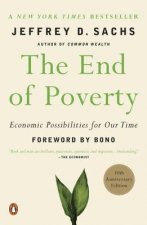
End of Poverty
18.72 € -8 % -

Introduction to Sustainable Development
63.18 € -5 % -

Brand Premium
28.63 € -4 % -

Getting Better
24.72 € -

Dubai
33.14 € -4 % -

Finance and Sustainable Development
32.74 € -

Methods to Analyse Agricultural Commodity Price Volatility
211.18 € -

China's Resource Diplomacy in Africa
114.85 € -

History of Development
28.83 € -10 % -

WTF?
26.93 € -19 % -
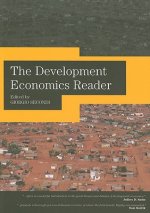
Development Economics Reader
111.74 € -

Modern Evolutionary Economics
35.74 € -5 % -

Resurgent Asia
59.77 € -
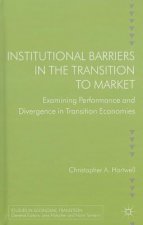
Institutional Barriers in the Transition to Market
114.85 € -

Foreign Aid, War, and Economic Development
43.45 € -

Transitions to Sustainable Development
190.25 € -

Technological Innovation and Economic Development in Modern Japan
59.27 € -

Living Standards and the Wealth of Nations
13.31 € -

Impact Evaluation in Practice
43.55 € -

New Paradigm for Korea's Economic Development
114.85 € -

New Paradigm for Korea's Economic Development
114.85 € -

War and Economic Development
43.45 € -

Zimbabwe's Casino Economy. Extraordinary Measures for Extraordinary Challenges
47.46 € -2 % -

Poland From Partitions to EU Accession
135.48 € -

Jeffrey Sachs
18.32 € -4 % -

ISO 50001 Energy Management Systems
17.31 € -24 % -

BRICS
110.84 € -1 % -

Wall Street
23.92 € -24 % -

Passions and the Interests
16.61 € -23 % -

Economics of Strategy
71.99 € -

Green Capitalism. The God that Failed
26.63 € -2 % -

Performance Economy
145.69 € -

The Future of Resilient Finance
127.37 € -

Why Perestroika Failed
274.07 € -

Capitalism with Chinese Characteristics
30.63 € -23 %
Collection points Bratislava a 2642 dalších
Copyright ©2008-24 najlacnejsie-knihy.sk All rights reservedPrivacyCookies



 15549 collection points
15549 collection points Delivery 2.99 €
Delivery 2.99 € 02/210 210 99 (8-15.30h)
02/210 210 99 (8-15.30h)